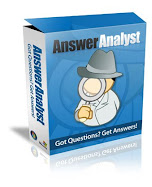When Facebook launched its advertising platform back in 2007, the company received a lot of criticism from users primarily regarding Beacon. Nearly a year and a half later, users have grown accustomed to the ads and webmasters and site owners are taking advantage of the tremendous opportunities. Tim Kendall, the Director of Monetization at Facebook, walks us through Facebook’s advertising system in this video from SES NY.
According to Tim, site owners and webmasters want to know how advertising on Facebook compares to the paid search campaigns they are used to doing. He says Facebook’s self- service advertising product is similar to paid search because it is based on a cost-per-click standard.
The primary difference between paid search and Facebook advertising is that paid search is centered on the user’s behavior and Facebook ads are based upon the data and preferences that users submit to Facebook. Tim says:
“We [Facebook] think that a Facebook ad is a way to reach customers before they search.”
In the above video, Tim demonstrates how to create an ad campaign for “tents” on Facebook. Before beginning the demo, Tim gives an example that 138,000 people in the United States search for tents in exact match queries on Google. This would mean that retailers selling tents have a predetermined allotment of 138,000 opportunities to sell their product. On Facebook however, those retailers can target millions of users who have shared an interest in hobbies such as hiking and camping, which could produce potential customers.
As Tim illustrates above, creating an ad on Facebook is a simple process that consists of a title, an optional image, and the text body. After the ad is complete, identify the target audience by selecting keywords from users interests (e.g., hiking, backpacking.) Facebook also displays an approximate reach based upon the number of people that included hiking as an interest on their profile. Once the target is selected, provide a bid according to standard cost-per-click (CPC) practices. The auction works just as any other online auction works.
Facebook believes it can provide a target market that is more direct than most other ad platforms. Also, the company believes that by offering this “demand generation solution” it will increase the number of searches.
Tim says that the product has exceeded its expectations and that some people are even getting better ROI on Facebook than they were getting with paid search. He said Facebook will continue to improve and develop their tool according to advertiser’s wants and needs. For more information on Facebook Advertising, visit www.facebook.com/advertising.





No comments:
Post a Comment